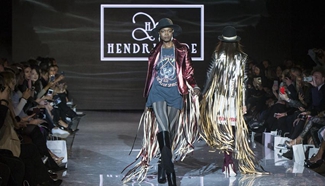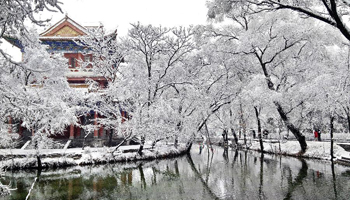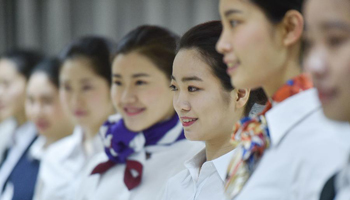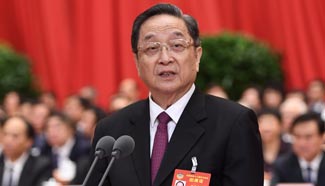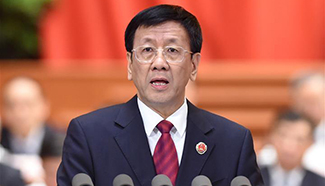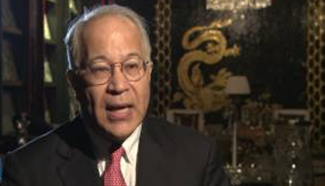ANKARA, March 13 (Xinhua) -- Recent political row between some European countries and Turkey will influence votes of Turkish citizens for upcoming referendum for constitutional amendment which will empower the president, and likely to increase support for "yes" vote, according to local experts.
"These recent events in Europe will affect not only the Turkish citizens living in Europe but also the voters in Turkey, causing the rise of nationalist reflexes," according to pollster Adil Gur.
Nationalist wave in Turkey has been increasing since a coup attempt in July 15, but last week's incidents in Europe will further strengthen this nationalist wave, Gur, the head of the A&G polling group, says.
"The perception of external threat will become even stronger in the public opinion which already has that sense," the expert notes.
"This situation will increase the referendum motivation in Turkey, where the enthusiasm and motivation were low while going to the polls," he said, adding that European countries' internal decisions will sure have impact on perceptions of Turks.
Turkish ministers were barred from holding rallies in Rotterdam at the weekend, even Family and Social Affairs Minister was deported. Dutch police scuffled with Turkish protestors in front of Turkey's consulate in Rotterdam.
Earlier on Saturday, the diplomatic row came to a high when the Dutch government withdrew the landing rights for the plane of Turkish Foreign Minister Mevlut Cavusoglu.
The Turkish politicians were not welcomed in Germany either, but Cavusoglu was able to address Turks in Hamburg at the Turkish Consulate General after permissions of two halls in the city were cancelled, the fourth such cancellation in the past weeks for Turkish politicians seeking to hold rallies in Germany.
The tension between Turkey and European countries over allowing Turkish politicians' propaganda speeches for the referendum come at time when Germany, Netherlands and France are passing through political campaign for public vote in 2017 with an increase of right-wing rhetoric across the continent.
In Turkey, nationalist wave is the propellent power for "yes" votes for charter change endorsed by the ruling Justice and Development Party (AKP) whose founder and current President Recep Tayyip Erdogan will enhance his powers in executive presidency, and by the Nationalist Movement Party (MHP).
Despite the MHP leader lends support to the constitutional change, an important part of party grassroots are skeptical about the presidential system.
Opponents, including the main opposition Republican People's Party (CHP) and the pro-Kurdish Democratic Peoples' Party (HDP), suggest the change would push Turkey toward one-man rule and the likely erosion of basic rights and freedoms.
A January survey by pollster Metropoll indicates that 10 percent of both AKP and MHP voters were undecided, compared to about five percent among CHP and HDP supporters. The hesitation on the conservative and nationalist voters is the main concern for "yes" camp due to relatively high percentage of undecided voters.
"There is significant undecided population. We are at the beginning of the campaign. I think that undecided voters will lean towards 'yes' in the next 10 or 15 days," Deputy Prime Minister Numan Kurtulmus said on Feb. 17.
The diplomatic crisis of Turkey with Germany and Netherlands will certainly work for the "yes" camp, retired Ambassador Uluc Ozulker told Xinhua.
"The Dutch attitude has nothing to do with neither international law, nor humanity. It's an awful attitude which would naturally cultivate nationalist sentiment," the ambassador says.
The Turkish leaders keeps up harsh rhetoric against Netherlands and Germany, even President Tayyip Erdogan branded the Netherlands "Nazi remnants" and" fascists."
In previous elections, the AKP always benefited from domestic antagonism by agitating against the opposition, according to Hurriyet Daily News columnist Murat Yetkin.
"Now, when EU countries started to turn down the AKP ministers' demands to attend meetings, the government refocused its campaign on Europe, searching for a national unity that it hopes to convert into support for 'yes' in the referendum," he says.
"It is certainly true that the current antagonism has perhaps given a momentum to the AKP campaign, which has lacked the desired excitement so far. However, that has come at the dear cost of a further hit at the reputation of the Republic of Turkey," Yetkin added.




